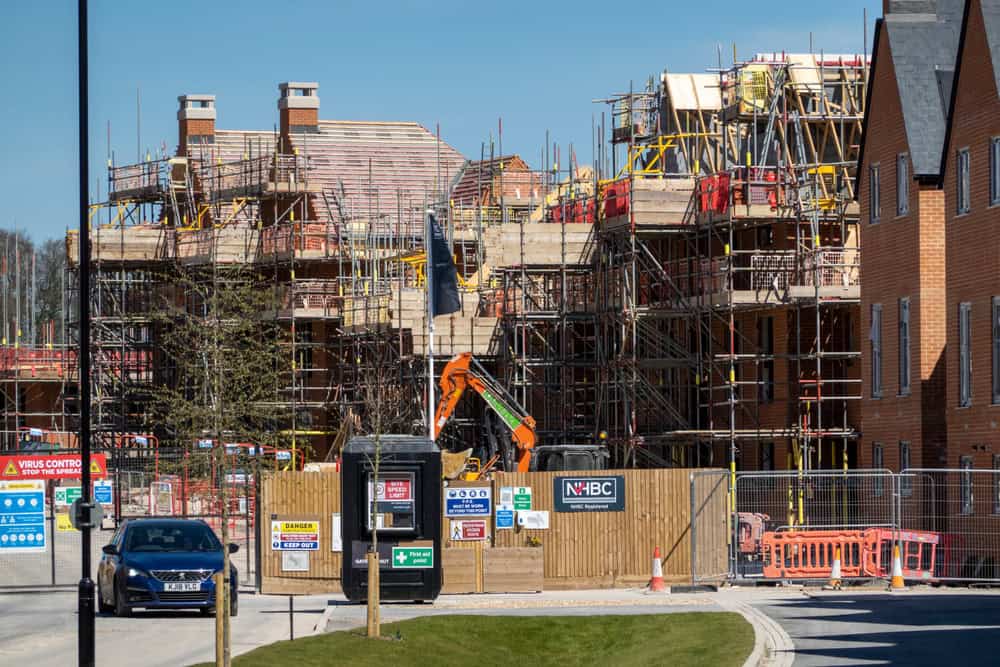The UK construction industry outlook for 2024 presents a complex picture, with key declines in planning approvals and contract awards, according to the latest Glenigan report.
The report shows that detailed planning approvals have dropped sharply by 37% year-on-year, reflecting a challenging environment for new projects.
Main contract awards also fell by 7% compared to last year, while the value of new project starts remained flat overall. Despite these challenges, growth in the private housing and industrial sectors offers some hope for the future.
Project Starts Hold Steady, But Major Developments Struggle
The report reveals that project starts have largely remained steady year-on-year, averaging £9.75 billion per month. However, there is a clear split between large and small projects. Major developments (those worth £100 million or more) have suffered a 23% decline compared to the previous quarter, while smaller projects (under £100 million) saw a 7% rise.
“The latest data provides a somewhat positive outlook for the industry, with a rise in private housing and infrastructure starts underpinning a 7% rise in construction starts against the preceding three months,” said Allan Wilén, Glenigan’s Economics Director.
However, he cautioned that the government’s decision to postpone various road and rail projects could limit future growth in infrastructure.
Sector-by-Sector Overview
Private housing has been a bright spot, with project starts rising 30% compared to the previous quarter.
“Increased confidence among developers, with an expected upturn in housing market activity, is expected to lead to a rise in private housing starts,” the report states.
Despite this, the sector remains 4% down on a year ago, and social housing continues to struggle, with project starts dropping 21% compared to last year.
The industrial sector showed impressive growth in the UK construction industry outlook 2024 report, with a 45% increase in project starts over the last three months. This is a notable 27% rise compared to last year, driven by projects like the £60 million development in Hillingdon, London.
On the other hand, office construction has taken a hit, with starts down 47% compared to the previous quarter and 42% year-on-year. “Office starts performed poorly,” the report notes, as demand for new office spaces remains subdued.
Retail projects also faced a tough period, with a 25% decline compared to the previous quarter and a 21% drop year-on-year.
Infrastructure Projects Boosted by Key Developments
Civil engineering projects showed a more positive outlook, with an 18% rise in starts, underpinned by large infrastructure investments. Notable developments, such as the Old Oak Common Station in London, have helped infrastructure to start rising by 36% compared to last year.
Wilén pointed out that infrastructure starts are encouraging but warned that “the government’s decision to postpone various road and rail projects may mean this upturn is short-lived.”
Regional Disparities
The report highlights significant regional variations in construction activity. The East Midlands led the way, with a 65% rise in project starts compared to the previous quarter. Northern Ireland and the South West also performed well, with growth rates of 32% and 20%, respectively.
However, the UK construction industry outlook 2024 was less positive for regions like Yorkshire and the Humber, Wales, and the North East, all of which experienced sharp declines in construction activity. The North East, for instance, saw a 35% fall in project starts compared to the previous quarter, while Yorkshire and Wales both experienced double-digit declines year-on-year.
Economic Outlook Remains Uncertain
Although the UK economy grew by 0.6% in the second quarter of 2024, inflationary pressures and uncertainty around government spending on infrastructure continue to weigh on the sector’s outlook. The report notes that while fuel and material costs have begun to stabilise, inflation remains a concern.
Manufacturers have seen input costs ease over the past year, which could help alleviate some pressure on construction costs. “Recent months have seen a drop in material costs compared to a year ago,” the report states, although it warns that wage inflation could still push up prices in the service sector.


